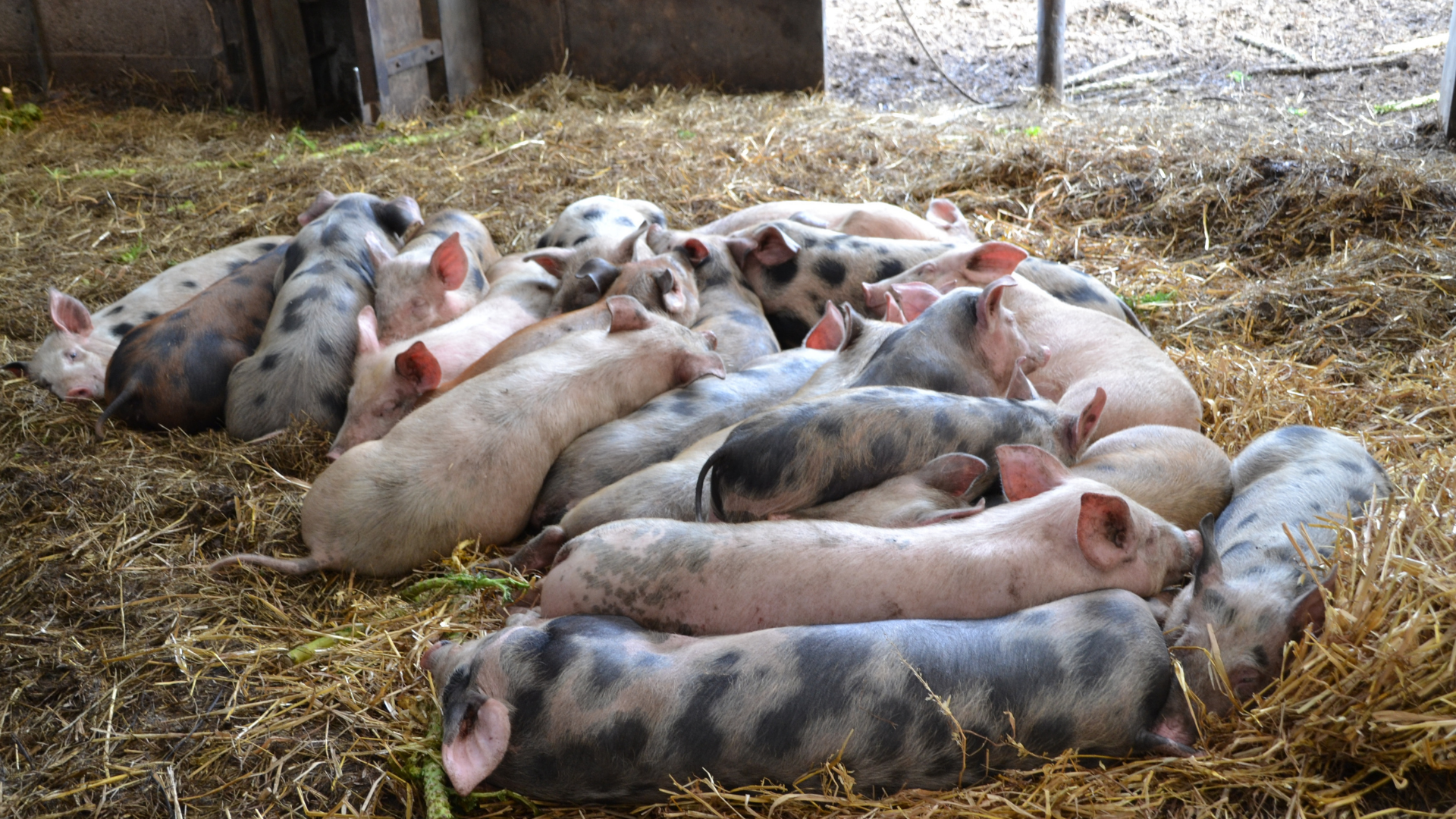Reducing antimicrobial use through improved provision of colostrum and use of vaccines in weaning pigs in Colombia
Context
Pig farming has been one of the fastest growing agricultural and economic sectors in Colombia over the past decade. This has contributed positively to the country’s food security and has generated socio-economic development in the regions where pigs are produced. The increasing demand for pork is, however, requiring sustainable production strategies with favourable production cost for the country’s pig farmers, while ensuring animal health and welfare and quality of pork.
Problem
The pig industry is a major user of antimicrobials. The largest volume of antimicrobials in pig farming is used to control piglet diarrhoea which is often associated with lower growth, as well as higher morbidity and mortality. A weak immune system of the piglets makes them prone to diseases like diarrhoea before and after weaning and antimicrobials are routinely used to prevent or treat the symptoms.
A recent survey with the participation of 22 pig farms with more than 400 sows found that 50% of the farms reported diarrhoea cases among piglets during the lactation period. It affected between 5 to 30% of the pig litters. About 20% of the farms had diarrhoea problems in the post-weaning stage. Added to this problem, 80.9% of the farms did not diagnose the etiological agent causing the diarrhoea. For this reason, vaccines are typically applied without knowledge on the specific pathogen associated with the diarrhea which is then often treated with broad-spectrum antimicrobials. Furthermore, the survey showed large variations in procedures for supplying raw milk (colostrum). None of the participating pig farms used systematic methods for measuring the efficacy of their efforts and practices to reduce diarrhoea and improve immunity (Porkcolombia, 2021).
Project Overview
The long-term goal is to improve stakeholder participation and knowledge in enhancing piglet immunity that will lead to more rational use of antimicrobials in Colombian pig farming. The project is organized into five work packages with the specific objectives to:
- Evaluate the impact on diarrhoea and use of antimicrobials of a better colostrum and vaccine management in piglets
- Identify and suggest mitigations of economic, behavior and other factors that prevent a better supply of colostrum and vaccine use.
- Conduct economic, policy and formative analyses and build a business case for optimized supply of colostrum and use of vaccines
- Develop and disseminate guidelines and protocols for optimized provision of colostrum and vaccine use.
- Strengthen research capacity at research institutions and Porkcolombia and provision of research-based evidence to policy makers in Colombia
Outcomes
The aim of the project is to evaluate the effect of the multifaceted colostrum and vaccine intervention to enhance the piglet immune system, thus reducing the incidence of diarrhoea and the need to use antimicrobials. The expected outcomes are as follows:
- Weaning diarrhoea and antimicrobial use reduced by 20%
- Increased engagement and acceptance among the stakeholders for scaling up the new colostrum and vaccine protocols
- Increased research capacity within the veterinarians and junior researchers in the pig- production context
“This project will contribute with evidence that can be used to advocate and trigger action to draft policies and legislation addressing the prophylactic, metaphylactic and therapeutic use of antimicrobials in pigs, as well as policies addressing access and use of vaccines.”
Corina Zambrano, Executive Vice-President, Porkcolombia
Results
- Interventions are completed in three farms and are expected to finish in February 2024 in the remaining two farms.
- More than 60 short training sessions on the colostrum and vaccine protocol had been rolled out for farm workers in December 2023
- There was a large variation in preventive and therapeutic antimicrobial use in the farms prior to the intervention.
- E.coli, Clostridium Perfringens and Clostridium difficile were the most commonly detected bacteria in piglets with diarrhoea on the intervention farms.
Facts
Region: Latin America
Sector: Terrestrial and Aquatic Animals
Country: Colombia
Type: Project
Country partners: Ministry of Agriculture and Rural Development, Porkcolombia, Universidad Nacional del Centro de la Provincia de Buenos Aires, Colombian Agricultural Institute – ICA
Timescale: 1st February 2022 - 31st January 2025
ICARS funding: 548.986 USD
ICARS Science Team


Resources
Share
Share this project on socials

